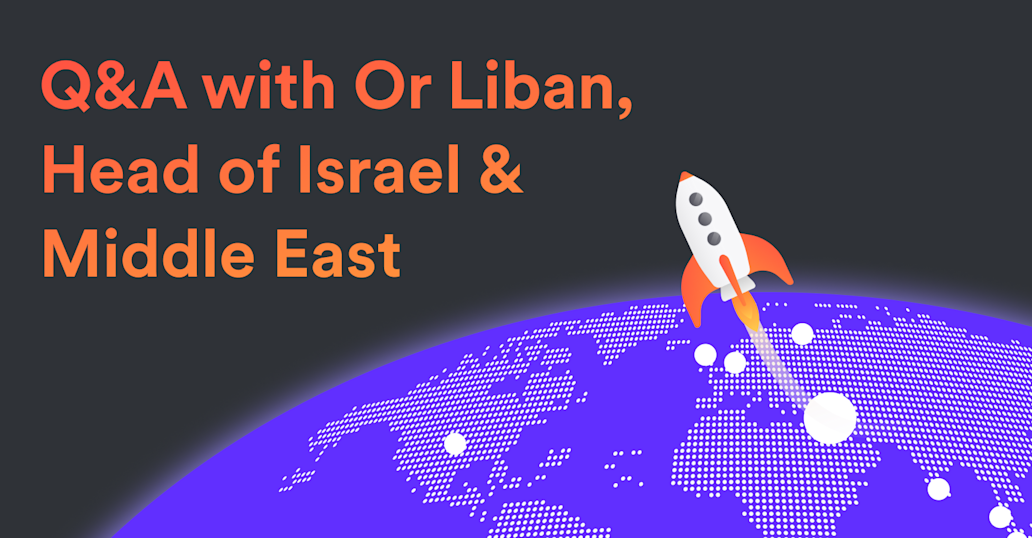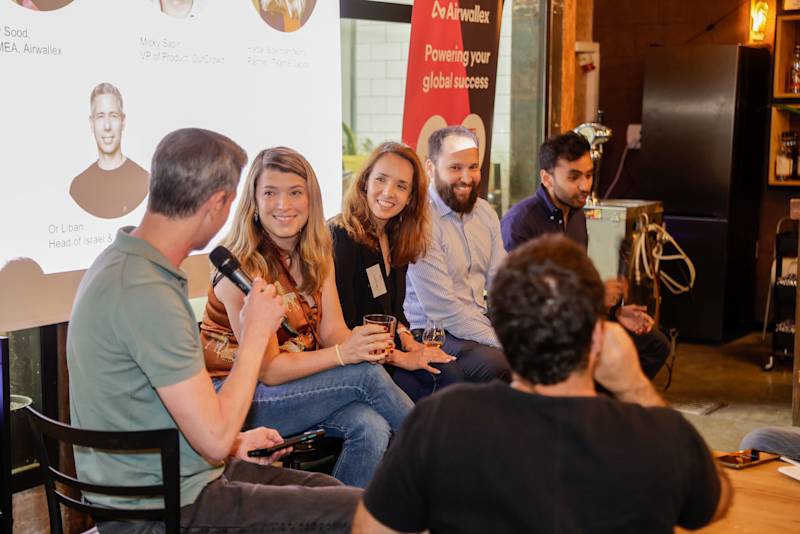Launching Airwallex in Israel and the Middle East: our vision and strategy

We were so excited to welcome the Tel Aviv tech community to our launch party and to be able to share our vision for Airwallex and the Middle East.

We’d like to take this opportunity to share this vision with an interview with Or Liban, our new Head of Israel and the Middle East.
What made you move to Airwallex?
Or Liban: To me, the most exciting industry right now is in the fintech and payments space. It’s not only an industry that disrupts, but it’s actively going through disruption itself. Airwallex fits the bill because it's a product driven global startup that has proven it can move fast and innovate.
That appeals to me because my immediate background is in managing emerging markets at Google for their monetization products, and after doing that for a considerable period, I felt it was time to move into a fresh, exciting industry.
Innovation vs disruption: is there a difference?
Or Liban: Disruption and innovation work together — disruption is the result of innovation. Whether the disruption is in a technological sense or a state of mind, this triggers the change that ripples through the industry.
And the bigger the innovation, the more profound the distribution and the change. And the more extensive the change, the more the innovation is felt across industries.
When I think about disruption and specifically how Airwallex disrupts fintech, I first think about it as a technical disruption. But, in other ways, it’s an ideological disruption, also – we think about cross-border payments differently, so we build them differently.
How does Airwallex compare to traditional banks?
Or Liban: Airwallex is a global-first solution, which is very unlike our traditional counterparts — banks. Banks weren’t built to be global-first. They’ve been local in their approach with historically disparate systems. Banking infrastructure is about how they can most efficiently make the most returns. Banks prioritise money storage.
Whereas with Airwallex, we’re about removing borders, allowing businesses to operate with the greatest amount of freedom globally while maximizing growth. We prioritise money movement.
How is Airwallex bringing borderless business to the Middle East?
Or Liban: The Middle East is currently experiencing a “digital awakening,” with internet penetration increasing by 20% annually. An increase in connectivity and globalisation powers the region's desire to play on the world stage, sparking innovation on a global scale.
And that’s because Israel is the Startup Nation and home to multinational organisations because there’s a huge talent pool over here. It’s also close to regions including the UAE and Saudi, which are both encouraging innovation with very ambitious technology plans.
When globalisation and technology enthusiasm meet, good things can happen.
The region is focused on building the next generation of entrepreneurs, which makes it the perfect place to educate new generations of technology. And although change can be difficult and challenging, the region understands it’s essential to change. Not just because the world is changing and it’s give-and-take, but because there is a bottom-up demand from new generations of people in the region who are looking to make that change.
Inherent to enabling Middle Eastern businesses to play on the world stage? Cross-border payments.
Specifically: Global embedded finance.
We see domestic embedded finance, and we raise you global embedded finance.
Imagine the same use cases, speed of build and the revenue possibilities offered by domestic embedded finance, but make it operable everywhere. That’s what global embedded finance offers. It means global businesses can build global financial infrastructure directly into their products and services.
So, whether that’s a platform like MODIFI vastly improving international trade finance or a company like OurCrowd, which connects global investors to global startups, the opportunities presented by global embedded finance are multiplied.
I am very excited to see what the global-first tech entrepreneurs of Tel Aviv, Dubai and Ryade, will build next with global embedded finance powered by Airwallex.
What does the future of payments look like?
Or Liban: Payments will be automatically managed based on your needs as a business.
All the solutions you see today, such as generative AI, will help create an advanced, limitlessly efficient financial infrastructure.
Financial barriers, including having to open a new entity in every location or having to prove your identity to a bank, will no longer exist. These will be things that will happen in the background without having to worry or think about them.
Airwallex is already evolving into the future, we spread ourselves around the globe, connecting to local payments infrastructure so customers don’t have to. Thinking about global payments differently and subsequently building global payments differently, as a result, will benefit future generations of businesses.
In the present? It means you can scale your business globally from day one.
The future roadmap for Airwallex is ambitious, and I’m very excited to be on this journey.
If you’re a business looking to operate in the Middle East, get in touch to learn more.
Share

David manages the content for Airwallex. He specialises in content that helps EMEA businesses navigate global and local payments and banking.
